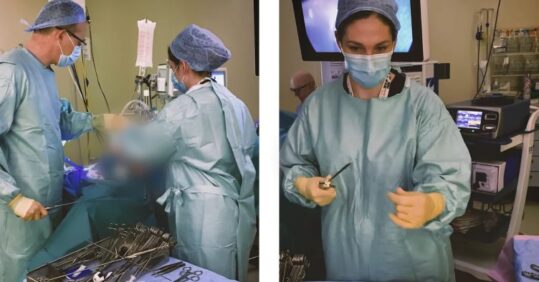RCN launches short films featuring newly qualified nurses

The RCN has released a series of short films showcasing the ‘rich diversity’ of newly qualified nurses and the healthcare settings they work in.
The films, which are available on YouTube, interview and capture a day in the life of six nurses from the RCN’s Newly Registered Nurse Network (NRN), covering a wide spectrum of the profession from working in hospitals to working in the community.
Related Article: Nurse had to ‘freeze’ PPE during pandemic to re-use in care home, Covid inquiry hears
Craig Davidson, a newly qualified community staff nurse for an Asylum Health Bridging Team in Glasgow, explained in his film that his nurse-led team arranges for asylum seekers to be linked with a local GP and any further services they require.
In the video, he said: ‘The most difficult part of my role, I would say, is listening and hearing the emotional trauma people have been through… The most rewarding part is, without a doubt, is being able to make that tangible difference to their lives.’
Related Article: More nursing apprenticeships and changes to student travel expenses
Mr Davidson has also appreciated the peer support offered by the RCN’s Newly Registered Nurses Network because it can be ‘hard’ and ‘challenging at times,’ he added.
Films also featured Lynsey McLaughlin, a surgical theatre nurse in Northern Ireland; Enock Mutsinzi, a military nurse in Portsmouth; Clare Manley, a community mental health nurse in Manchester; Daniel Branch, a learning disability nurse in Lancashire; and Kayte Powell, a critical care nurse in Wales.
Rachel Hollis, RCN Professional Nursing Committee chair, said: ‘The journey to becoming a registered nurse is always a challenge, made even tougher by the pandemic, but it has created opportunities too, and inspired those who are joining the workforce now.
Related Article: Nurses given ‘range of leadership opportunities’ in NHS 10-year plan
‘I hope the testimonies given by the six newly qualified nurses featured in these films demonstrate what a great profession nursing it is to be a part of. These films will appeal to anyone considering a career in nursing, from those just starting their education to more experienced nurses like myself who have been working in the profession for years.’

See how our symptom tool can help you make better sense of patient presentations
Click here to search a symptom




